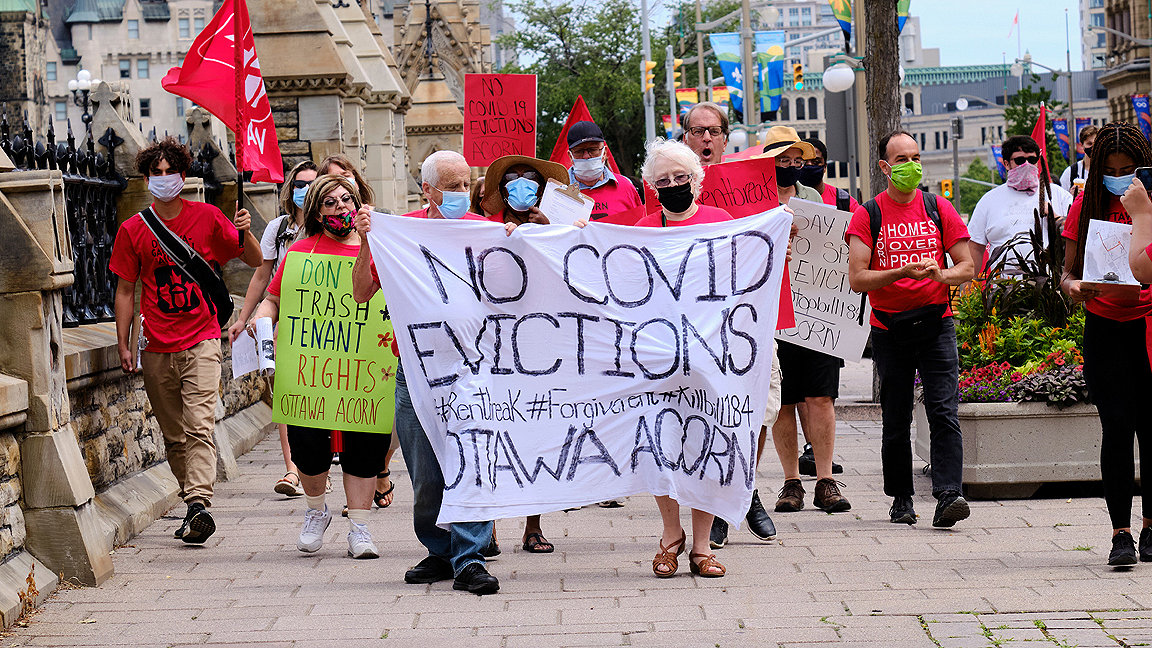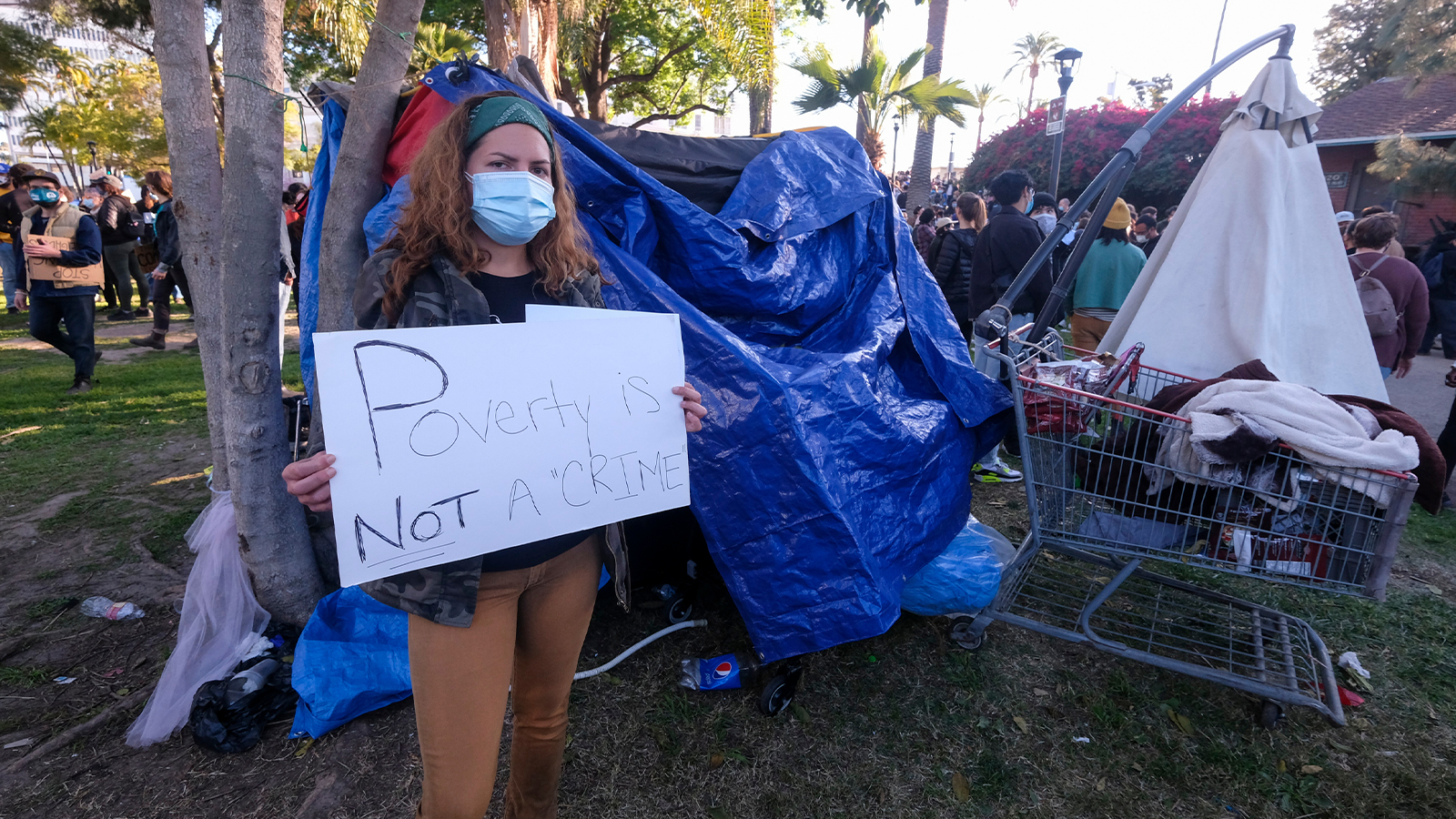
The economic fallout from the COVID-19 pandemic has been likened to the Great Depression. In our second article on the social impacts of the pandemic, we ask whether government responses to this crisis have been as dramatic as those 90 years ago. Chris Martin, a research fellow at the University of New South Wales’ City Futures Research Centre, doesn’t think so.
In 1931, the government of New South Wales reduced rents across the board by 22.5% and banned evictions for non-payment of rent due to economic hardship with, where necessary, arbitration by a judge. In 2020, the Australian national government announced a nationwide eviction moratorium, but it was coordinated with the governments of states and territories, who proceeded to set their own policies that varied in the strength of protection they gave to tenants. As rent arrears began to pile up, Martin characterises the Australian government’s casual attitude as “have a chat with your landlord”.
The plight of Australia’s rental households was already dire before the pandemic, more than half of the country’s low-income renters were considered “rent stressed”, or paying more than 30% of their income in rent. That so many households were already living on the margin made landlord and estate agent suggestions that tenants withdraw retirement funds to pay their way all the more galling.
“Real estate agents and landlords, by and large, disgraced themselves early in the emergency,” says Martin.
He praises the state of Victoria for a more coordinated approach that coupled a strong moratorium with a rent variation process that offered a decision by tribunal. But, by and large, the patchwork of regional government responses were an additional complication for tenants. They provided no clear guidelines about whether tenants were eligible for rent reductions or deferrals, especially if terms were negotiated privately between tenant and landlord. These private and unofficial arrangements made efforts by government to implement rent relief schemes harder. Tax rebates, for example, were a moot point for large landlords who don’t pay land tax in most jurisdictions.
“The pandemic has shown that a lot of things that were considered impossible happened as soon as there was a clear, public-health need”
“The developed world has stronger institutions and is better able to enforce moratoria,” says Joseph Schechla, Cairo-based coordinator for the Habitat International Coalition’s Housing and Land Rights Network, which monitors forced evictions globally. The NGO documented nearly 10 million cases of forced eviction, dispossession, confiscation of property, or demolition in 2020. Schechla says that eviction protections were weakest in Brazil, Colombia, and Egypt and, in some countries, evictions were used as a targeted weapon against vulnerable groups, such as sub-Saharan Africans in Tunisia or Roma people in parts of Europe.
In India, which instigated an eviction moratorium, millions of low-wage workers had no interest in remaining in rental housing. “Most moves were not evictions but rather migration away from cities because of the pandemic,” says Sanjay Dutt MRICS, CEO of Tata Housing, a development company and part of the Tata Group. “Migrant people did not want to pay heavy rents, so they terminated their leases and went back home to live with their parents, family, and friends because of the lockdown.”
Like other developed nations, the UK adopted an eviction moratorium that has been extended multiple times and is currently set to expire, in England, on 31 May. The ongoing state of limbo is precarious.
“Landlords can’t afford to boot everyone out,” says Amy Clair, a research fellow in social policy at the University of Essex. “If they do, the government will face a huge bill because those households will be entitled to homelessness assistance and, because of the lack of social housing, that will probably mean putting them into a B&B, a hotel, or the private rental sector.”

“Real estate agents and landlords, by and large, disgraced themselves early in the emergency”
Although a rare occurrence, Clair envisions a scenario where individuals could be evicted and then rehomed in the same house through homeless assistance measures. So far, the government’s response has been a temporary £20 weekly increase in assistance payments and a rebalancing of the local housing allowance.
“They are penny pinching,” Clair says. “Finding a way for people to meet rental costs is going to be expensive, but it will not cost nearly as much as all these people becoming homeless.”
The ongoing crisis may have permanently altered UK housing policy. No-fault evictions, known as Section 21 evictions, were already due to be phased out under much-delayed 2019 legislation. The pandemic effectively ended Section 21 evictions for a year, however, which may hasten their demise.
“The pandemic has shown that a lot of things that were considered impossible - like providing shelter for all the street homeless – happened as soon as there was a clear, public-health need,” Clair says. “We’ve shown that these decisions can be made. Before this, there was no chance of an eviction moratorium.”
For Schechla, whose NGO holds governments to account for their obligations under international human rights law, the shift in global rhetoric around forced evictions was a welcome silver lining.
“This is one of the relatively positive features of the pandemic,” he says. “It has brought out a sense of communal and social responsibility, especially on the part of local governments and mayors who have been dealing with this on the real, operational level.”
The view from Canada
“The Canadian commercial real estate industry has committed to assisting occupiers with their real estate challenges, particularly in navigating the challenges of financial commitments during the pandemic and continued lockdowns,” says Sheila Botting FRICS, principal & president, Americas Professional Services at Avison Young.
“At the same time, the market has been slowly recovering with rent delinquency rates continuing to decline from this same time last year:
- Retail declined from 42% last year to 13%. It is the sector affected the most
- Apartment delinquencies declined from 6.8% this time last year to 3%
- Office delinquencies declined from 8% to 1%, and tenants requesting rent relief similarly fell from 16% to 1.8%
“Property owners and industry professionals alike have worked closely with business and tenants to help throughout the pandemic,” adds Botting.
“Examples in tenant assistance include: assisting in the application for government subsidies, providing rent relief, redesigning physical spaces to accommodate social distancing requirements, and addressing health and cleaning requirements.
“It is clear that the entire real estate industry is razor focused on recovery, and working across our communities to ensure the survival and success of space occupiers and ultimately, real property.”



